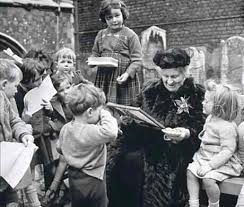

The history and Impact of Montessori Education!
Montessori education was developed by Dr. Maria Montessori, an Italian physician and educator, in the early 1900s. Her approach was revolutionary at the time, focusing on child-centered learning where children are viewed as active participants in their own education. Dr. Montessori’s philosophy emphasized the importance of self-directed learning, allowing children to explore, experiment, and learn at their own pace in an environment that encourages independence and curiosity. She believed that education should nurture a child’s natural desire to learn rather than rely on traditional methods of instruction.
The Montessori method introduced the concept of a carefully prepared environment, where classrooms are designed to foster exploration and hands-on learning. In these classrooms, children interact with specially designed learning materials that are meant to engage the senses and promote cognitive development. These materials are not just toys, but carefully curated objects that support specific educational goals—such as learning math concepts, developing fine motor skills, or exploring language. The role of the teacher is more that of a guide or facilitator, observing the child’s progress and offering help when needed.
Over time, Montessori education gained popularity and spread worldwide. Its impact can be seen not only in pre-schools and elementary schools but also in various educational systems that have adopted its principles. The method has been praised for its focus on nurturing children’s intrinsic motivation, fostering independence, and supporting social and emotional development. Research has shown that Montessori students tend to excel in problem-solving, creativity, and social skills, with many Montessori-educated individuals becoming lifelong learners with a strong sense of responsibility and empathy.
Despite its success, Montessori education faces challenges, particularly in a traditional schooling system that values standardized testing and structured curriculums. Critics argue that the approach may not be universally applicable, especially in larger classroom settings or regions with limited resources. Nevertheless, the Montessori method continues to inspire educators and parents around the world, providing an alternative vision of what education can look like—one that respects the individual child’s pace, interests, and developmental needs.




 click and follow Indiaherald WhatsApp channel
click and follow Indiaherald WhatsApp channel